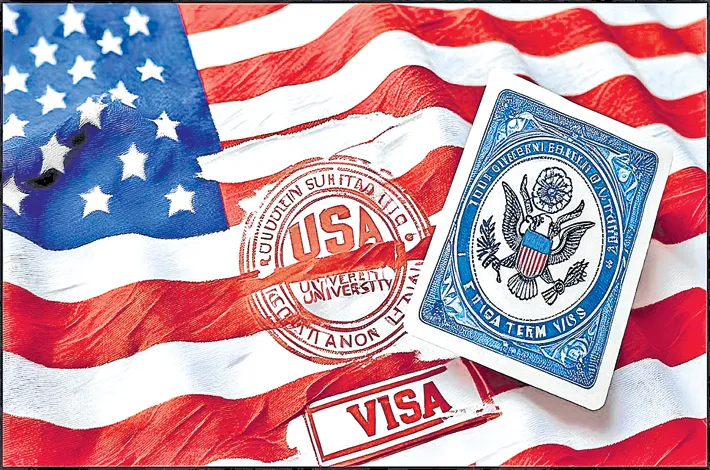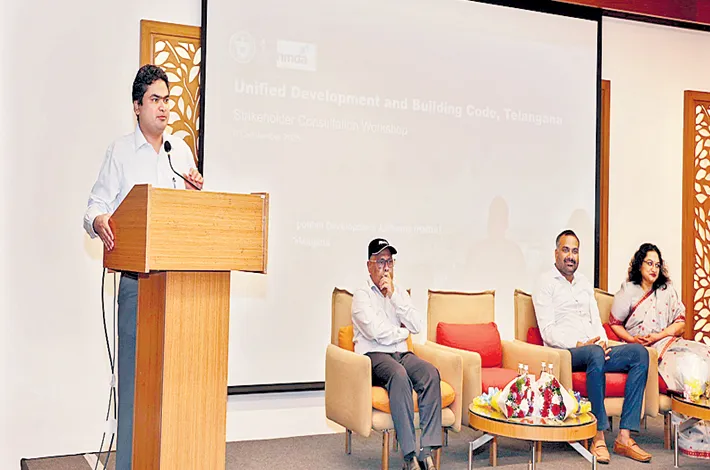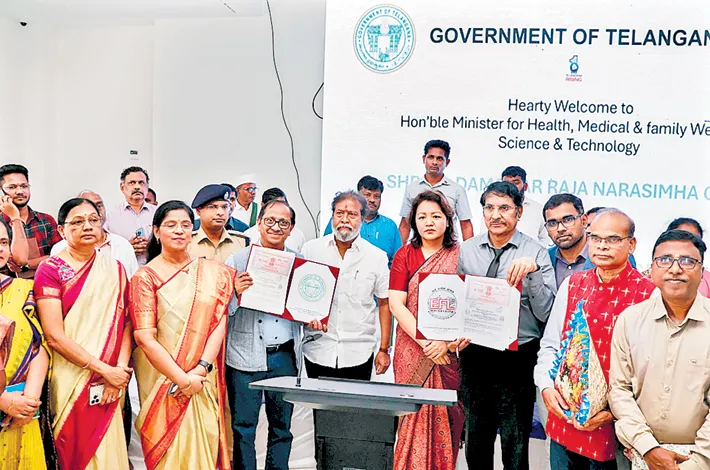TRUMP’S SHOCK WAVES AGAIN!
09-09-2025 12:00:00 AM

Simple Vishwakarma Mumbai
The Trump administration is planning to place a four-year time limit on student visas in the United States, the Department of Homeland Security (DHS) announced on Wednesday. If finalised, the proposal would end the current system that allows international students to remain in the country for an indefinite period as long as they are enrolled in a program.
According to the release, the proposed rule seeks to bring foreign student visas in line with other categories of temporary visas by capping the length of stay and requiring applicants to seek extensions when needed. Currently, most students enter on an F visa under a “duration of status” policy, which has been in place since 1978. That arrangement allows them to stay for as long as they are enrolled, without a fixed end date.
Under the concept, during their first year of study, undergraduate students would not be permitted to switch programs, majors, or educational levels. Only in certain circumstances, such as a school shutdown or an extended disruption brought on by a natural disaster, may the Student and Exchange Visitor Program (SEVP) offer exceptions, according to a report by Fragomen.
Once a student completes a program at a certain level, they can't come back on F-1 status to study another program at the same level or a lower one. According to the proposed regulation, DHS may postpone or suspend these modifications if technical updates to the SEVIS system are not possible to implement.
A spokesperson for the DHS said in the release that the current system makes it difficult for the government to properly track visa holders. “For too long, past administrations have allowed foreign students and other visa holders to remain in the U.S. virtually indefinitely, posing safety risks, costing taxpayer dollars, and disadvantaging U.S. citizens,” the spokesperson said.
The proposed changes have drawn mixed reactions from students. An Indian student pursuing a master’s degree in Computer Science in New Jersey said on the condition of anonymity, “This feels stressful. Most of us plan our higher education with the idea of flexibility—sometimes programs take longer, sometimes research needs more time. A strict four-year cap could add pressure and uncertainty.”
Another master's in business student in California expressed concern over restrictions on changing majors. “I understand the government’s point about oversight, but not allowing program or major changes in the first year seems unfair. Many students realise after a semester that their chosen major isn’t the right fit,” he said.
A PhD candidate from Japan in Biology pursuing in Texas pointed to the impact on research programmes. “For research degrees like PhDs, four years is rarely enough. Extensions may be possible, but the extra paperwork and approvals could discourage international students from choosing the U.S. at all.”
The permitted admission period for international students and exchange visitors would be equal to the length of their academic program under the proposed amendments, with a maximum of four years. Extensions past that time frame would need U.S. Citizenship and Immigration Services (USCIS) permission.
Karan Gupta, an education consultant and career counsellor, believes the renewed discussion reflects a desire to tighten immigration oversight, but notes it doesn’t necessarily have to be a setback.
“A fixed-term visa brings clarity. It defines the student’s timeline and can encourage better planning,” Gupta said. “While the ‘duration of status’ model has its flexibility, it also leaves room for ambiguity and potential overstays. A fixed-term approach, if implemented with provisions for legitimate extensions, can promote responsible planning without disadvantaging international students.”
DHS officials argue that the changes would improve oversight by requiring regular assessments of visa holders and ensuring better access to information through programs like the Student and Exchange Visitor Program (SEVP) and the Student and Exchange Visitor Information System (SEVIS).
In 2020, the Trump administration first proposed this idea, but in 2021, the Biden administration withdrew it. With the new announcement, the administration signalled its desire to revive the program, citing national security, accountability, and equity for Americans as the primary rationales.
The new rule, if implemented, will limit the amount of time that foreign students, professors, physicians, and other visa holders are allowed to remain in the United States without additional screening and vetting.








